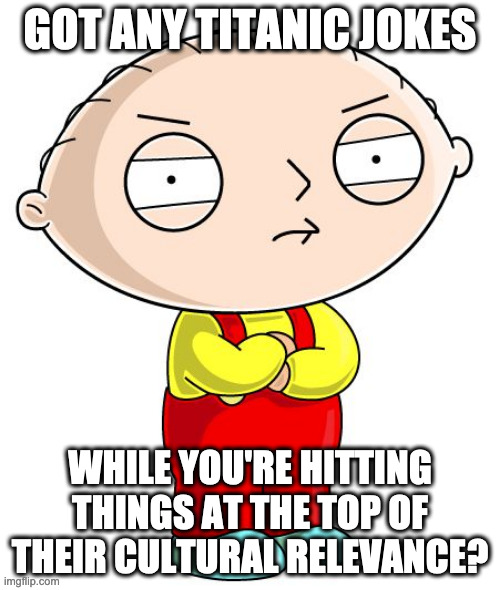Title: Oppenheimer
Director: Christopher Nolan
Writers: Christopher Nolan, Kai Bird, Martin Sherwin
Starring: Cillian Murphy, Emily Blunt, Robert Downey Jr., Florence Pugh, Jason Clarke, Benny Safdie, Josh Hartnett, Alden Ehrenreich
I finally saw Oppenheimer, and if you have an interest in the subject, it’s well worth seeing. It’s a near-great film that’s great when it covers the atomic bomb project, and considerably less great when It Has Important Things To Say.
The movie covers much of the life of J. Robert Oppenheimer (Cillian Murphy), director of the Los Alamos part of the project to build the atomic bomb. The movie has a non-linear format, using the framing device of two different hearings (on the renewal of Oppenheimer’s security clearance, and the cabinet confirmation hearing for Lewis Strauss (Robert Downey Jr.), who lured Oppenheimer to Princeton and oversaw the Atomic Energy Commission, and who is eventually revealed to be the film’s antagonist) interspersed with Oppenheimer’s life before and during the The Manhattan Project.
When the film is good, it’s flat out great. The scenes here tend to be small in scope, seldom more than a minute long, slowly building up Oppenheimer’s life, his love and study of physics, his dalliance with communism (he was a fellow-traveler who never joined the party, but did take a commie (Florence Pugh) as his first wife and an ex-commie (Emily Blunt) as his second), his dismay as a Jewish American at the rise of Nazism, and his involvement in the atomic bomb effort.
The brevity of the scenes is one of the film’s greatest strengths. Though mostly quiet and understated in themselves, they slowly build up a heady steam of narrative momentum. By the time they get to Los Alamos itself you’re absolutely riveted.
And it gets better. The scenes leading up to the Trinity detonation are a masterpiece of film editing, successfully ratcheting the tension higher and higher just by showing scenes of the elaborate preparations leading up to the blast, under-laid by Ludwig Göransson’s tense, violin-heavy score. I saw the film in IMAX, and I think I got my money’s worth out of that sequence alone.
But that headlong pace enfolds within it a problem: Things move so fast, that some scenes have a certain checkmark quality to them, so that you know exactly what’s coming. Gee, when commie girlfriend picks up a Sanskrit text, what do you want to bet that the passage he’s reading is “I am become death, destroyer of worlds?”
Please, no wagering.
But that’s a minor problem compared to the biggest flaw of Oppenheimer, which is what they chose to include as the main non-Trinity storyline. Why have the climax of your film feature the literal explosion of an atomic bomb when you can spend the rest of it on the pulse-pounding excitement of committee meetings?
To be fair to Nolan, this is obviously the film he wanted to make, and the film is called Oppenheimer rather than The Making of the Atomic Bomb. And the committee meeting scenes are as well-acted, well-directed and well-paced as you could reasonably ask of a big-budget, A-list Hollywood film. But the real reason they’re there is so the leftist screenwriters can Say Important Things.
Oppenheimer must feel massive guilt and remorse for having helped usher in the atomic age, because this is Approved Opinion. Leftists, even commies, must be shown in a positive light, because this is Approved Opinion. Likewise, McCarthyism must be shown to be Very Bad, so all the crimes of communism have to be kept offstage.
Indeed, an awful lot happens off-stage, including the bombings of Hiroshima and Nagasaki. Then again, Oppenheimer is the viewpoint character.
From my better-than-the-average-layman-understanding-at-how-an-atomic-bomb-works-but-hardly-an-expert vantage point, the historical accuracy for the film seems painstaking and effective. I understood why Klaus Fuchs was important when he was introduced, appreciated the Nixie tubes in the Trinity countdown, and figured out the guy with the bongos must have been Richard Feynman. Everything sure as hell looks accurate, and the New Mexico photography is gorgeous.
But with so much time spent on the commie and Strauss plots, and Oppenheimer having visions of particle physics (early) and atomic destruction (late), the rest of the film (the far more interesting part) feels a bit rushed. Plus the sheer smallness of the stakes that drive the frame-story/post-Trinity portion feels like a distinct anticlimax. Indeed, the primary subplot turns out to be (spoilers) Strauss secretly shiving Oppenheimer by getting his security clearance yanked for…his supporting export of radioactive isotopes to Norway? It’s like if during the climax of Kill Bill, you find out that the Bride’s entire motivation for her revenge spree was Bill never returning her DVD of Steel Magnolias.
All that said, this is still an exceptionally good film, and even the ostensibly bad guys Have Their Reasons. Even hydrogen bomb father Edward Teller (Benny Safdie), who the writers must have been tempted to turn into a secondary villain, comes across as a smart, sympathetic figure. And history validates both his and Strauss’ view that America was right to move forward on the H-Bomb, as the Soviets were utterly untrustworthy as arms control treaty partners.
I expect Oscar nominations galore.
If you’re the kind of person that would watch a three hour movie on the making of the atomic bomb, this is the one to watch.
